Table of Contents
The Punjab State Education Board has announced the commencement of the Punjab State TET 2024. Aspirants are advised to read the PSTET Syllabus 2024 to get started with the preparation for the exam. The chance of cracking the exam gets higher with the proper and optimal use of the syllabus for PSTET Paper I and PSTET Paper II. A better understanding of the PSTET Exam Pattern and other nuances helps candidates gain better perspective and plan accordingly. Below are the details regarding the PSTET syllabus and exam pattern.
PSTET Syllabus 2024
The PSTET Syllabus 2024 is provided by the Punjab School Education Board (PSEB) for the Punjab State Teacher Eligibility Test (PSTET). This exam is held to recruit teachers for Primary and Upper Primary levels. The selection process involves a written test, and candidates can apply online through the official website at https://pstet.pseb.ac.in/.
| PSTET Syllabus 2024 | |
| Conducting Body | Punjab School Education Board (PSEB) |
| Entrance Exam Name | Punjab State Teacher Eligibility Test (PSTET) |
| Post Name | Primary and Upper Primary Level Teachers |
| Category | PSTET Syllabus 2024 |
| Selection Process | Written Test |
| Application Mode | Online |
| Official Site | https://pstet.pseb.ac.in/ |
PSTET Exam Pattern 2024
PSTET exam consists of two papers- Paper- I and Paper II. Paper-I is for the candidates interested in qualifying for the Primary Teaching jobs. Candidates who wish to qualify for the Upper Primary teaching jobs in their concerned subjects i.e. Mathematics and Science teacher, Social studies teacher, Art & Craft teacher, Physical Education teacher, Home science teacher, Urdu teacher, Music teacher, Sanskrit teacher, any other teacher who wants to apply for Paper-II. In the following table, candidates can find the detailed marks distribution for both Paper-I and Paper-II of PSTET Exam 2024.
Also Read: CTET New Syllabus 2024
PSTET Exam Pattern For Paper 1
The PSTET Paper 1 exam pattern consists of 150 multiple-choice questions, with each question carrying one mark, adding up to a total of 150 marks. The questions are divided among five subjects: Child Development and Pedagogy (30 marks), Environmental Studies (30 marks), Mathematics (30 marks), Language I (30 marks), and Language II (30 marks). Candidates have 150 minutes (2.5 hours) to finish the exam.
| PSTET Paper I Exam Pattern |
||
| Sections | Number of Questions | Marks |
| Child Development and Pedagogy | 30 | 30 |
| Environmental Studies | 30 | 30 |
| Mathematics | 30 | 30 |
| Language I (Punjabi) | 30 | 30 |
| Language II (English) | 30 | 30 |
| Total | 150 | 150 |
PSTET Exam Pattern For Paper 2
The PSTET Paper 2 Exam Pattern for Upper Primary Teachers (Classes VI to VIII) consists of 150 multiple-choice questions, each carrying one mark, with a total duration of 150 minutes (2.5 hours). The test covers four sections: Child Development and Pedagogy (mandatory, 30 marks), Language 1 (mandatory, 30 marks), Language 2 (30 marks), and two subject-specific areas chosen by the candidate (30 marks each).
| PSTET Paper II Exam Pattern | ||
| Sections | Number of Questions | Marks |
| Child Development and Pedagogy | 30 | 30 |
| Language I (Punjabi) | 30 | 30 |
| Language II (English) | 30 | 30 |
|
60 | 60 |
| Total | 150 | 150 |
PSTET Syllabus 2024
The PSTET 2024 syllabus is divided into four key sections: Child Development & Pedagogy, Language I (mandatory), Language II (mandatory), and an optional section based on the teaching position—either (a) Mathematics and Science, (b) Social Science, or (c) a choice between the two. Each section covers essential topics, such as language comprehension, foundational math skills, child development theories, and environmental awareness.
PSTET Syllabus 2024 For Paper 1
PSTET Syllabus for paper 1 is provided by the Punjab State Education Board on its official website. Candidate may access the PSTET Paper 1 syllabus from the below article.
I. PSTET Syllabus For Child Development and Pedagogy
- Concept of development and its relationship with learning
- Principles of the Development of children
- Influence of Heredity & Environment
- Socialization processes: Social world & children (Teacher, Parents, Peers)
- Piaget, Kohlberg, and Vygotsky: constructs and critical perspectives
- Concepts of child-centered and progressive education
- Critical Perspective of the Construct of Intelligence
- Multi-Dimensional Intelligence
- Language & Thought
- Gender as a social construct; gender roles, gender bias and educational practice
- Individual differences among learners, understanding differences based on diversity of language, caste, gender, community, religion, etc.
- The distinction between Assessment for learning and assessment of learning;
- School-Based Assessment, Continuous & Comprehensive Evaluation: perspective and Practice
- Formulating appropriate questions for assessing readiness levels of learners; enhancing learning and critical thinking in the classroom and for assessing learner achievement.
- Addressing learners from diverse backgrounds including disadvantaged and deprived
- Addressing the needs of children with learning difficulties, ‘impairment’ etc.
- Addressing the Talented, Creative, Specially abled Learners
- How children think and learn; how and why children ‘fail’ to achieve success in school performance.
- Basic processes of teaching and learning; children’s strategies of learning; learning as a social activity; social context of learning.
- Child as a problem solver and a ‘scientific investigator’ Alternative conceptions of learning in children, understanding children’s ‘errors’ as significant steps in the learning process.
- Cognition & Emotions
- Motivation and learning
- Factors contributing to learning – personal & environmental
II. PSTET Syllabus For Language I
- Reading unseen passages – two passages one prose or drama and one poem with questions on comprehension, inference, grammar and verbal ability (Prose passage may be literary, scientific, narrative or discursive)
- Learning and acquisition
- Principles of Language Teaching
- Role of listening and speaking; function of language and how children use it as a tool
- A critical perspective on the role of grammar in learning a language for communicating ideas verbally and in written form
- Challenges of teaching language in a diverse classroom; language difficulties, errors and disorders
- Language Skills
- Evaluating language comprehension and proficiency: speaking, listening, reading, and writing
- Teaching-learning materials: Textbook, multi-media materials, multilingual resources of the classroom
- Remedial Teaching
III. PSTET Syllabus For Language – II
- Two unseen prose passages (discursive or literary or narrative or scientific) with question on comprehension, grammar and verbal ability
- Learning and acquisition
- Principles of Language Teaching
- Role of listening and speaking; function of language and how children use it as a tool
- Critical perspective on the role of grammar in learning a language for communicating ideas verbally and in written form;
- Challenges of teaching language in a diverse classroom; language difficulties, errors and disorders
- Language Skills
- Evaluating language comprehension and proficiency: speaking, listening, reading and writing
- Teaching – learning materials: Textbook, multi-media materials, multilingual resource of the classroom
- Remedial Teaching
IV. PSTET Syllabus For Mathematics
- Geometry
- Shapes & Spatial Understanding
- Solids around Us
- Numbers
- Addition and Subtraction
- Multiplication
- Division
- Measurement
- Weight
- Time
- Volume
- Data Handling
- Patterns
- Money
- Nature of Mathematics/Logical thinking; understanding children’s thinking and reasoning patterns and strategies of making meaning and learning
- Place of Mathematics in Curriculum
- Language of Mathematics
- Community Mathematics
- Evaluation through formal and informal methods
- Problems of Teaching
- Error analysis and related aspects of learning and teaching
- Diagnostic and Remedial Teaching
V. Environmental Studies Syllabus of PSTET
- i. Family and Friends:
- ii. Food
- iii. Shelter
- iv. Water
- v. Travel
- vi. Things We Make and Do
- Concept and scope of EVS
- Significance of EVS integrated EVS
- Environmental Studies & Environmental Education
- Learning Principles
- Scope & relation to Science & Social Science
- Approaches of presenting concepts
- Activities
- Experimentation/Practical Work
- Discussion
- CCE
- Teaching material/Aid
- Problems
PSTET Syllabus 2024 For Paper 2
PSTET Syllabus for paper 2 is provided by the Punjab State Education Board on its official website. Candidate may access the PSTET Paper 2 syllabus from the below article.
I. PSTET Syllabus For Child Development and Pedagogy
- Concept of development and its relationship with learning
- Principles of the development of children
- Influence of Heredity & Environment
- Socialization processes: Social world & children (Teacher, Parents, Peers)
- Piaget, Kohlberg and Vygotsky: Constructs and critical perspectives
- Concepts of child-centered and progressive education
- Critical perspective of the construct of Intelligence
- Multi Dimensional Intelligence
- Language & Thought
- Gender as a social construct; gender roles, gender-bias and educational practice
- Individual differences among learners, understanding differences based on diversity of language, caste, gender, community, religion etc.
- Distinction between Assessment for learning and assessment of learning; School-Based Assessment, Continuous & Comprehensive Evaluation: perspective and practice
- Formulating appropriate questions for assessing readiness levels of learners; for enhancing learning and critical thinking in the classroom and for assessing learner achievement.
- Addressing learners from diverse backgrounds including disadvantaged and deprived
- Addressing the needs of children with learning difficulties, ‘impairment’ etc.
- Addressing the Talented, Creative, Specially abled Learners
- How children think and learn; how and why children ‘fail’ to achieve success in school performance.
- Basic processes of teaching and learning; children’s strategies of learning; learning as a social activity; social context of learning.
- Child as a problem solver and a ‘scientific investigator’
- Alternative conceptions of learning in children, understanding children’s ‘errors’ as significant steps in the learning process.
- Cognition & Emotions
- Motivation and learning
- Factors contributing to learning – personal & environmental
II. PSTET Syllabus For Language – I
- Reading unseen passages – two passages one prose or drama and one poem with questions on comprehension, inference, grammar and verbal ability (Prose passage may be literary, scientific, narrative or discursive)
- Learning and acquisition
- Principles of Language Teaching
- Role of listening and speaking; function of language and how children use it as a tool
- Critical perspective on the role of grammar in learning a language for communicating ideas verbally and in written form;
- Challenges of teaching language in a diverse classroom; language difficulties, errors and disorders
- Language Skills
- Evaluating language comprehension and proficiency: speaking, listening, reading and writing
- Teaching-learning materials: Textbook, multi-media materials, multilingual resource of the classroom
- Remedial Teaching
III. PSTET Syllabus For Language – II
- Two unseen prose passages (discursive or literary or narrative or scientific) with question on comprehension, grammar and verbal ability
- Learning and acquisition
- Principles of Language Teaching
- Role of listening and speaking; function of language and how children use it as a tool
- Critical perspective on the role of grammar in learning a language for communicating ideas verbally and in written form;
- Challenges of teaching language in a diverse classroom; language difficulties, errors and disorders
- Language Skills
- Evaluating language comprehension and proficiency: speaking, listening, reading and writing
- Teaching – learning materials: Textbook, multi-media materials, multilingual resource of the classroom
- Remedial Teaching
IV. (A) PSTET Syllabus For Mathematics & Science
(i) Mathematics
- Number System
- Algebra
- Geometry
- Mensuration
- Data handling
- Nature of Mathematics/Logical thinking
- Place of Mathematics in Curriculum
- Language of Mathematics
- Community Mathematics
- Evaluation
- Remedial Teaching
- Problem of Teaching
(ii) Science
- I. Food
- II. Materials – Materials of daily use
- III. The World of the Living
- IV. Moving Things People and Ideas
- V. How things work
- VI. Natural Phenomena
- VII. Natural Resources
- Nature & Structure of Sciences
- Natural Science/Aims & objectives
- Understanding & Appreciating Science
- Approaches/Integrated Approach
- Observation/Experiment/Discovery (Method of Science)
- Innovation
- Text Material/Aids
- Evaluation – cognitive/psychomotor/affective
- Problems
- Remedial Teaching
V. PSTET Syllabus For Social Studies/Social Sciences
- When, Where and How
- The Earliest Societies
- The First Farmers and Herders
- The First Cities
- Early States
- New Ideas
- The First Empire
- Contacts with Distant Lands
- Political Developments
- Culture and Science
- New Kings and Kingdoms
- Sultans of Delhi
- Architecture
- Creation of an Empire
- Social Change
- Regional Cultures
- The Establishment of Company Power
- Rural Life and Society
- Colonialism and Tribal Societies
- The Revolt of 1857-58
- Women and Reform
- Challenging the Caste System
- The Nationalist Movement
- India After Independence
- Geography as a social study and as a science
- Planet: Earth in the solar system
- Globe
- Environment in its totality: natural and human environment
- Air
- Water
- Human Environment: settlement, transport and communication
- Resources: Types-Natural and Human
- Agriculture
- Diversity
- Government
- Local Government
- Making a Living
- Democracy
- State Government
- Understanding Media
- Unpacking Gender
- The Constitution
- Parliamentary Government
- The Judiciary
- Social Justice and the Marginalized
- Concept & Nature of Social Science/Social Studies
- Class Room Processes, activities and discourse
- Developing Critical thinking
- Inquiry/Empirical Evidence
- Problems of Teaching Social Science/Social Studies
- Sources – Primary & Secondary
- Projects Work
- Evaluation
PSTET Syllabus PDF
The candidate should download the PSTET Syllabus 2024 to keep referring to it while preparing for the PSTET Exam 2024. To download the PSTET Syllabus 2024, candidates can click on the following link. Here we are providing PSTET Syllabus for Paper 1 and PSTET Syllabus for Paper 2 in their subject concerned.
| PSTET Syllabus PDF | |
| PSTET Syllabus | Download PDF |
| PSTET Paper I & Paper II | Click Here |
| PSTET 2024 Important Links | |
| PSTET 2024 | PSTET Syllabus 2024 |
| PSTET Previous year Question Papers | PSTET Exam Date 2024 |
| PSTET Eligibility Criteria 2024 | PSTET Preparation Tips 2024 |

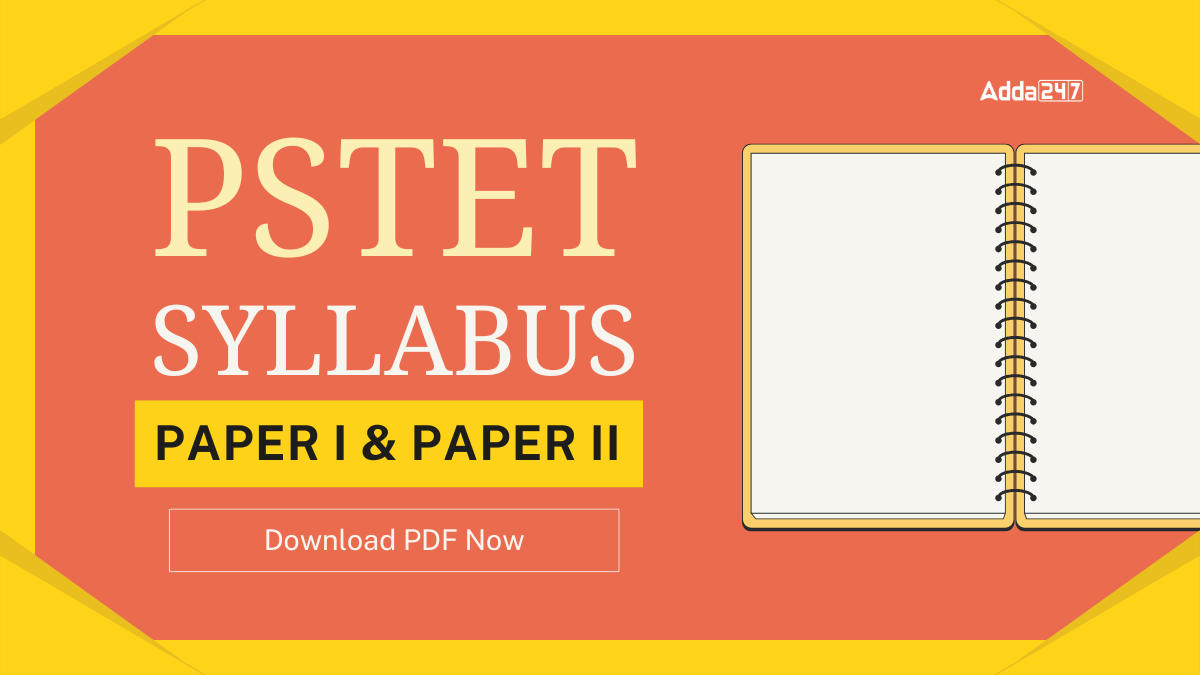
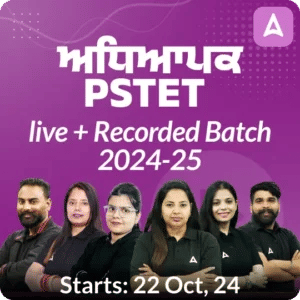

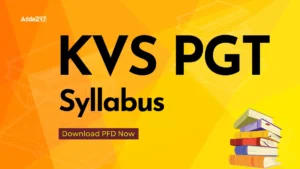 KVS PGT Syllabus 2025, Download PGT Syll...
KVS PGT Syllabus 2025, Download PGT Syll...
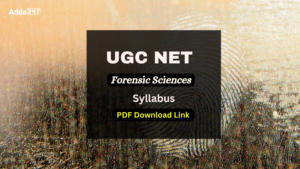 UGC NET Forensic Science Syllabus 2025 a...
UGC NET Forensic Science Syllabus 2025 a...
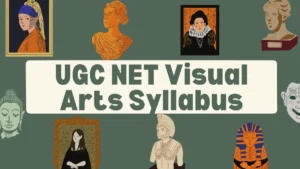 UGC NET Visual Arts Syllabus 2025 PDF Do...
UGC NET Visual Arts Syllabus 2025 PDF Do...














